Critiquing writing is like taste-testing wine
Since everyone else is talking about critiquing… okay, not everyone-everyone, but you know … everyone. 🙂 I just had to jump on the band wagon.
Now, my title might throw you a little. How is critiquing anything like a fine wine?
Well, let me tell you.
First off? I’m a very picky wine drinker. If it’s not white or white zinfandel? I’m not interested. If it’s tart? I’ll stay away. If it’s ultra-sweet? I can’t stand it. It has to be just to my liking… with a flavor that can lay on my tongue, draw me in and make me want to savor it.
You might like a red, full-bodied, something that burns my nostrils when I even breath around it.
Or, perhaps you’re not into the alcohol scene — at all — and you prefer the sparkling wines. Fine by me.
Then, of course, even in those color ranges (can you tell I am not a connoisseur?) there are different flavors and types; they taste different based on what you’ve eaten even.
See? I know a little. But let me get you back to the critiquing aspect.
If I have to tell you that a wine tastes good, I’m doing so based on my personal opinion … but also some key facts.
I can offer, color, a level of tartness/sweetness, how it is bottled, it’s year and any other number of industry specific details.
Now, let’s say I’m NOT a wine connoisseur (again, remember, I’m not — I don’t drink it very much, but I think the bottles are pretty). Why should you trust my judgement?
Should you even?
Maybe and maybe not.
When I combine what ‘the experts’ say with my opinion and explain WHY I’ve suggested the wine, then you have more information with which to work and the ability to take information and make choices for yourself.
This is how I critique the written word and my photographic art. In wines? Well, I gotta admit. Unless it comes in a shiny blue bottle with a sun on it (aka Reisling by some company that I have NO idea who it is) and it sells for about $7 at Harris Teeter, then I won’t buy it.
But with writing, I take my personal opinion, marry it with industry knowledge and provide BOTH in the context of a story. I am not there to change you story, but to help you tell it better. I am not there to tell you one wine is better than another with no explanation as to why, but to give you the tools and information conducive to making letting you make the choice.
Should I edit that word?
Do I edit all my ‘now’, ‘here’ and ‘this’ words because of the tense I am writing in?
Adverbs really do suck (or not).
Personal preference plays a large part, but there are also grammar rules, industry standards and the combination plays well together (I think).
But just like choosing a wine … sometimes, the answer isn’t to take all the advice of the expert and the person who’s come up with critique, but to reflect on how it feels TO YOU and to roll with it. Yep. How it feeeeeeeeeeeels. Sometimes, the gut knows all.
You just gotta educate yourself first before you can systematically make those decisions.
Agree? Disagree? Is critiquing really as subjective as we think or are the rules hard and fast?

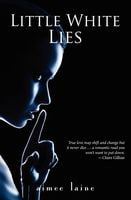



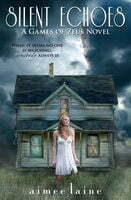
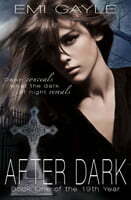
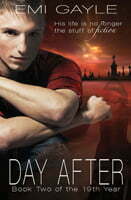
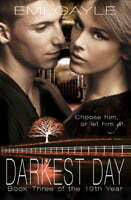
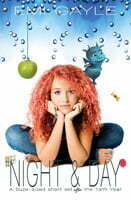
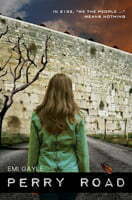

I agree about using the rules…with a few exceptions. I really don’t like the whole “adverbs” are evil kick. Using adverbs to bolster lackluster, passive writing is evil. Semi-colons aren’t evil. Sentence fragments aren’t evil. But I don’t think eschewing thousands of words in the English language makes sense either. Was it Ferris Bueller who said, “I do not like ‘isms’? LOL (scary that I’m quoting Ferris Bueller) Just say no to anti-adverbism, anti-semi-colons, anti-fragments, sentences beginning with ‘but’ or ‘and’ (ha! Aimee you knew I’d add that, didn’t you?).
When I read or critique, I go for emotional impact and voice first, with the most basic grammar rules (subject/verb match, proper word usage, tense consistency, etc) pulling in a close second.
Some of my favorite books have broken many industry “rules” and even grammar rules. But I don’t care. I don’t remember exact turns of phrases; I remember emotional impact. It’s that Maya Angelou quote again and again..it’s not what you say but how you make people feel that matters. Now that being said, there are writing preferences that make getting that emotion across and sticking it easier so we’d be a fool to completely ignore them.
“It’s that Maya Angelou quote again and again..it’s not what you say but how you make people feel that matters.”
Love, love, love that.
But i want it to be both feeling impactful AND written properly. 😉 Ha!
When it doesn’t come down to something like grammatical errors, typos, improperly used words, and such, I think critiquing is highly subjective. Just as reading preferences are subjective.
For the most part, I think that’s great. It gives the author a variety of opinions to consider. Every critter has his/her nitpicks and preferences, and I love it! I come across suggestions which read far better than what I’ve written. Or a suggestion might plant an idea into my head which spurs me to make to better phrasing. And if several critters are saying the same thing, chances are there is a problem.
I think the problems come into play when the author doesn’t know his/her voice, character, or storyline. Because critiquing is such a subjective experience, taking all those suggestions and dumping them into the pop can lead to a distasteful mess.
Authors need to remember that it’s okay to reject a suggestion, and they can’t please everyone. There are no hard fast rules, only enjoyable reads. If writers take time to read published works, they’d find out pretty quickly that the rules are really just guidelines which few people follow to a t.
“It’s that Maya Angelou quote again and again..it’s not what you say but how you make people feel that matters.”
That’s exactly when we lose VOICE. 🙂
Gotta love the typos. 🙂
There are NO rules that say adverbs and some present tense words in past tense narrative cannot be used. HOWEVER, I do point them out when critiquing.
Why? Because an overuse of adverbs that inadequately describe a scene/emotion (etc) which can be described in a MUCH better way, as well as those Now’s and This’s, and Here’s, stall my flow. I’m all about the flow of words. In the romantic text, I want to sit in my gondola, travel along the water, and get lost in the current. When in the midst of a good action scene, I want to be hauled along by the seat of my pants at the same speed with which I picture the sequence of events I’m reading about. There’s nothing worse than an entire (many-sentenced) paragraph to describe a singular punch that, in reality, wouldn’t even take a full second to throw. If something stalls that flow, I get irked, and I tell the writer about it … but I also try to explain why I think it happened. Without that why, they may walk away from your critique none the wiser. 🙂
“Without that why, they may walk away from your critique none the wiser.”
That is exactly why I add ‘explanation’ to as many crits as possible so the author can know WHY I’d suggest x, y, or z. For the ‘wise’ factor and so if what I say breaks ‘you’ voice in the piece you can just ditch it… but you know why I said it. 🙂
[…] This post was mentioned on Twitter by Reena Jacobs, Aimee Laine. Aimee Laine said: New blog post: Critiquing writing is like taste-testing wine https://www.aimeelaine.com/blog/?p=8256 […]